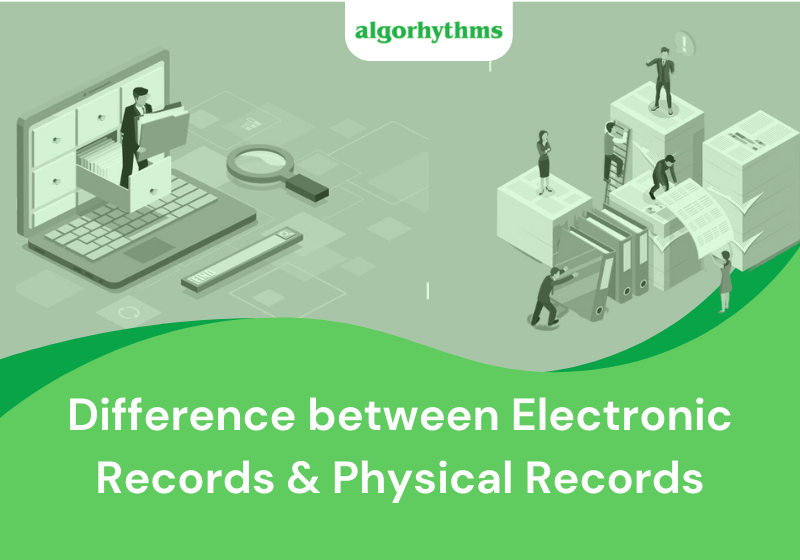The archival management process is challenging for several reasons. This includes the need to manage records in different formats, maintain them securely and safely, to store them in a way that is accessible. Earlier, maintaining all these records was a bit easy as it was all physical records. As technology has advanced, the transformation of physical records into electronic records, only original electronic records and more has made archival management more challenging.
Relax! You should be clear about before using an archival management system is the difference between electronic records and physical records. Let’s get started. But first, focus on the keyword here ‘Records’.
What are the Records?
Records are the backbone of any archive. They are the records that provide a historical context to a given topic and allow us to understand what is happening in the present. Records contain information about past events. It can be any form of documentation that is created and stored by an organization or government. Records may include transcripts, speeches, sound recordings, biography, memos, photographs, drafts, letters, financial reports, meeting minutes, contracts, medical records and more.
According to the ISO, Records are documents that are created, received, and maintained by an agency, organization, or individual in accordance with legal obligations or business needs.
Good records have certain characteristics:
- They must be original
- Relevant to the period
- Have complete and accurate information about what happened during that period.
- Easily accessible for future generations who may need it for research purposes.
- Stored in safe conditions
What are Archival Records?
An archival record is a piece of evidence that documents an event or transaction. It can be paper-based or electronic. Records are important because they provide evidence in legal proceedings as well as are necessary for conducting business and managing operations. The three characteristics that define a record are content, context, and structure. Content is what is recorded in the document; context is where it was created, and structure refers to how it was created. The value of a record depends on how important it is to the organization that created it. Records are preserved for several reasons. The most important reasons are to provide accurate accounts of events, to maintain a historical record, or as proof of someone’s existence.
Electronic Records vs. Physical Records
- Electronic records are records that are stored on a digital medium, like a computer or a mobile device. They are created, accessed, and maintained in digital form.
- Physical records are pieces of paper that contain information about an event. Records can be kept in many different formats, such as a photograph, video recordings, or a written account of the event.
- Electronic records are for the most part an improvement over physical records. The downside of electronic records is that they can be easily tampered with or deleted. Physical records on the other hand, provide a more secure way to manage data, but they are not as flexible as electronic ones. So, both the formats have their own pros and cons.
The role of an Archivist
Archivists need to know what the records are before they can be properly preserved and managed. There are certain questions they need to ask-
- Does it document any transactions?
- Does anyone consider it a record?
- Who owns it and is responsible for its creation and maintenance?
- What is the purpose of maintaining it? At what price?
Once they know it ticks all the fields to be termed as a record, they have to organise it properly so that it can be retrieved by anyone who needs it. They also have to ensure that these materials don’t get lost or damaged over time.
The best archival management software for electronic & physical records is iARCH. Our team at Algorhythms understands that not every archive is the same. Our software is designed keeping all the archival needs of the modern era in mind. With features such as a flexible and stable catalogue, multimedia content, search portal, custom dashboards and more, iARCH gives you the ability to organize data the way you need. Get in touch with us to make your archival management process hassle-free!

